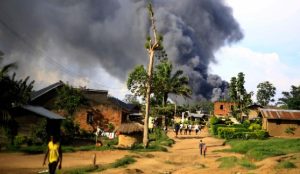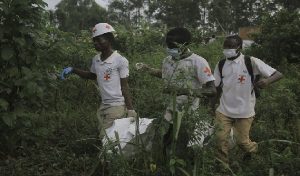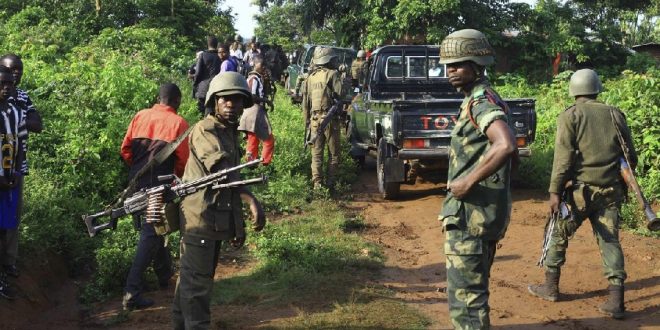16-04-2023
KINSHASA: Dozens of civilians have been killed as suspected armed groups raided villages in the Democratic Republic of the Congo (DRC), according to local advocates and news reports.
 The attacks took place on Friday in the province of Ituri, an area along the country’s northeast border with Uganda that has regularly experienced systematic attacks on communities since 2017.
The attacks took place on Friday in the province of Ituri, an area along the country’s northeast border with Uganda that has regularly experienced systematic attacks on communities since 2017.
Charite Banza, the head of local civil society, told the Reuters news agency that Friday’s attack killed about 30 people, “both women and men”.
“They set fire to several houses, looted property,” Banza explained.
Other sources told media that the death toll exceeded 40. A regional administrator named Innocent Matukadala told the news outlet that 36 bodies were found in the town of Kilo Etat, plus another eight in Matete and more in Itendy.
Robert Basiloko, another civil society leader from the area, told media he estimated 43 were killed, including five children. “Every day there are deaths,” he said. “We’re tired of it.”
Sources quoted in both Reuters and AFP identified a group of militias called the Cooperative for Development of the Congo, or CODECO, as the suspected culprit in the attacks.
The United Nations reports that violence and insecurity have caused an estimated 1.5 million people to be displaced in Ituri over the past six years.
 The conflict stems in part from ongoing tensions between the Lendu and Hema ethnic groups, as well as from the desire to control Ituri’s natural resources, which include gold and oil deposits. The conflict stretches back decades, with violence becoming particularly intense in the 1990s and 2000s.
The conflict stems in part from ongoing tensions between the Lendu and Hema ethnic groups, as well as from the desire to control Ituri’s natural resources, which include gold and oil deposits. The conflict stretches back decades, with violence becoming particularly intense in the 1990s and 2000s.
Since the violence spiked again in December 2017, attacks on civilians have become a near-daily occurrence, according to the UN. Spokesperson Eujin Byun issued a statement on January 24 that its refugee agency, the UNHCR, “is deeply concerned by the escalation of brutal attacks on civilians”.
“More than 200 civilians have been killed in the last six weeks in Ituri in a series of attacks by non-state armed groups, which also destroyed 2,000 houses and closed or demolished 80 schools,” Byun said at the time.
In 2021, the government of the Democratic Republic of the Congo declared a “state of siege” for both Ituri and the neighboring province of North Kivu.
The country has the largest population of internally displaced people on the African continent, with the UN estimating that at least 5.6 million have fled their homes.
The attacks have spilt over from villages to shelters housing the internally displaced, according to the UN. The Plaine  Savo camp has been repeatedly attacked by armed groups, including those affiliated with CODECO, leaving families dead and shelters burned to the ground. Thomas Tumusifu Buregeya wishes he were studying for his final school exams. Instead, he scrapes a living doing odd jobs in a displaced people’s camp in the eastern Democratic Republic of the Congo after a wave of rebel violence upended his life yet again.
Savo camp has been repeatedly attacked by armed groups, including those affiliated with CODECO, leaving families dead and shelters burned to the ground. Thomas Tumusifu Buregeya wishes he were studying for his final school exams. Instead, he scrapes a living doing odd jobs in a displaced people’s camp in the eastern Democratic Republic of the Congo after a wave of rebel violence upended his life yet again.
Buregeya fled the town of Kibumba with his family in October amid a renewed offensive by the March 23 Movement (M23) rebel group – the third time in 15 years he has been forced to escape his home and has not been able to study for a whole year. He is now 22 and still waiting to complete school.
“When from this camp I see … finalists like me, it makes my heart ache, I wonder when I will finish my studies, the years are going by,” he said.
He is one of the 750,000 young Congolese whose schooling is currently disrupted by insecurity caused by multiple armed groups in the eastern provinces of North Kivu and Ituri, the United Nations children’s agency (UNICEF) estimated in late March. (Int’l Monitoring Desk)
 Pressmediaofindia
Pressmediaofindia




